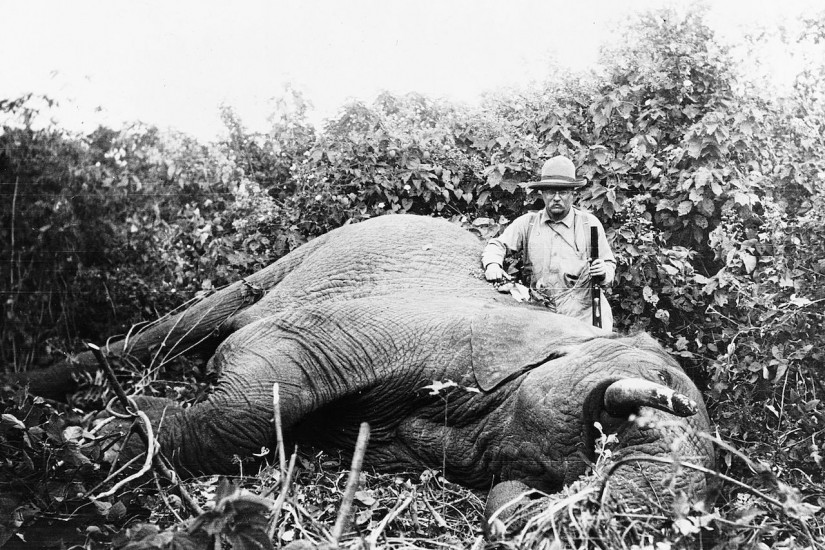Em Steck In your book, Roosevelt feels like the elephant in the room. What was hunting like before Teddy Roosevelt?
Philip Dray In the 17th century in America, early 18th century, there was some concern about hunters because they tended to be people who lived apart from civilization. They lived in the woods, they showed up occasionally to sell pelts or meat or whatever. There was kind of a sense that they would maybe become obsolete or something as civilization moved ahead and so on.
That all changed during the Revolutionary War when suddenly the frontiersmen, the hunter, suddenly showed his value. Somebody like Daniel Boone was in a way like a founding father — a founding hunter, basically. He was a militia leader during the war, an immensely skilled hunter, and, of course, later a pathfinder into Kentucky. [There were also] people like Davy Crockett a few decades later. And, of course, you had Buffalo Bill Cody.
After that, that persona was welcomed much more into the American family.
Em Steck And then after Roosevelt?
Philip Dray In the early years of the republic, a lot of the hunting had been subsistence-related hunting in America, but suddenly you had a birth of a leisure class. People like Teddy Roosevelt came along then. They were very much of that elite. These were gentleman hunters.
They were the first to notice and become concerned that wildlife was being depleted, whether it was passenger pigeons, water birds in the Everglades, buffalo on the Great Plains, white-tailed deer in the Northeast. [They realized] you could not hunt in a sort of unlimited way. That there had to be game regulations and there had to be seasons for hunting.
This is where the term “fair chase” comes in — the idea that the animal should have a chance to evade the hunter. And that certain types of hunting should be out of bounds because they were unethical. That was an important turning point. Hunters like Roosevelt brought that kind of fair chase ethos to the hunt that nurtured the conservation movement.
Em Steck Speaking of the conservation movement, you make the case that hunters can be passionate environmentalists. To some people, that might sound contradictory.
Philip Dray Historically, but even to this day, hunters are very much involved with wildlife preservation and the preservation of habitat.
